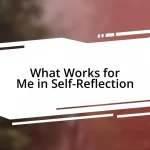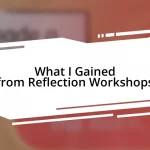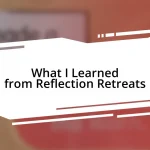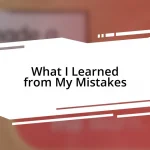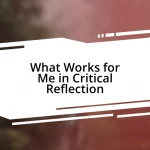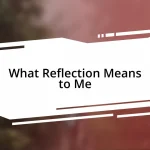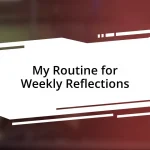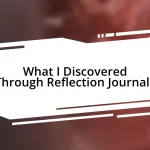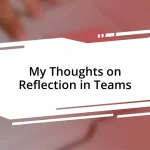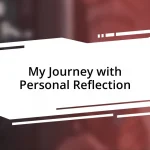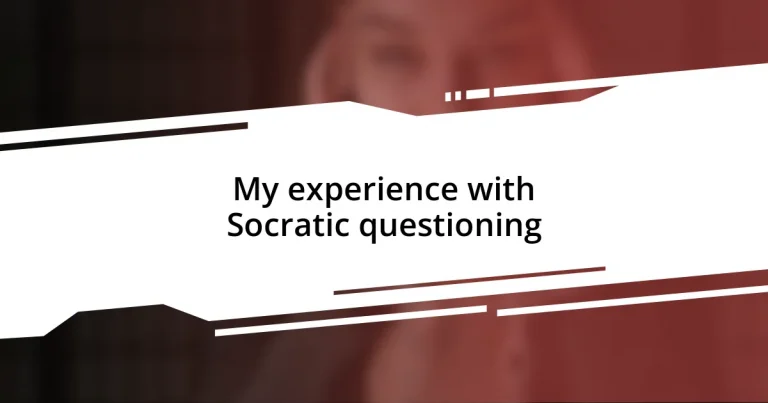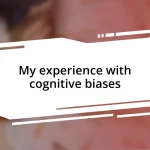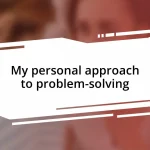Key takeaways:
- Socratic questioning promotes deeper understanding and critical thinking by exploring ideas rather than just stating facts.
- Challenges include resistance to questioning, emotional reactions, and time constraints which can hinder effective dialogue.
- Engaging in Socratic questioning fosters mutual empathy and enhances inquiry, shifting perspectives and improving group discussions.
- Active listening and tailored questioning can significantly improve the quality of discussions and lead to meaningful insights.
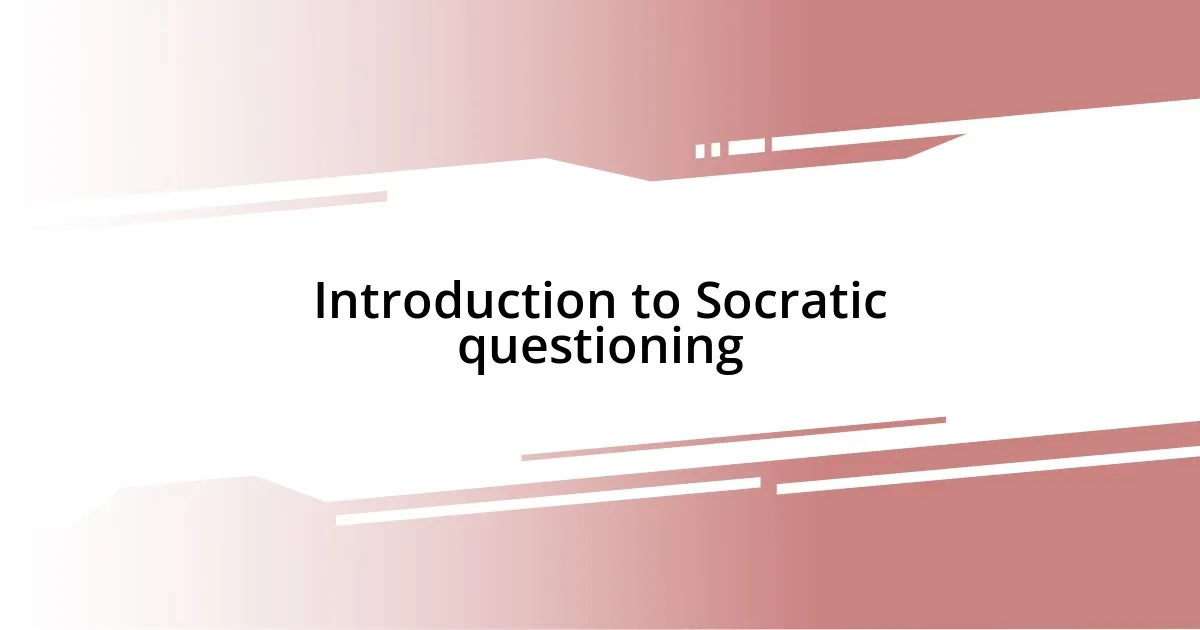
Introduction to Socratic questioning
Socratic questioning is more than just a method; it’s a way to unlock deeper understanding by challenging assumptions. When I first encountered this technique, I remember sitting in a philosophy class, feeling both intrigued and a bit overwhelmed. Why was it that asking the right questions often led to more profound insights than simply stating facts?
Imagine a dialogue where every answer leads to another question, creating a cascade of thoughts. That’s the essence of Socratic questioning. It encourages an exploration of ideas and promotes critical thinking rather than passive acceptance of information. I’ve experienced it during discussions with colleagues, where we would unravel complex issues by simply asking, “But what do you really mean by that?”
My personal journey with Socratic questioning has shown me its power in self-reflection. I often ask myself, “Why do I believe this?” or “What evidence supports my conclusion?” Doing so has not only deepened my understanding of various topics but has also helped me to confront biases I didn’t know I had. It’s fascinating to realize how a chat rooted in curiosity can lead to significant personal growth.
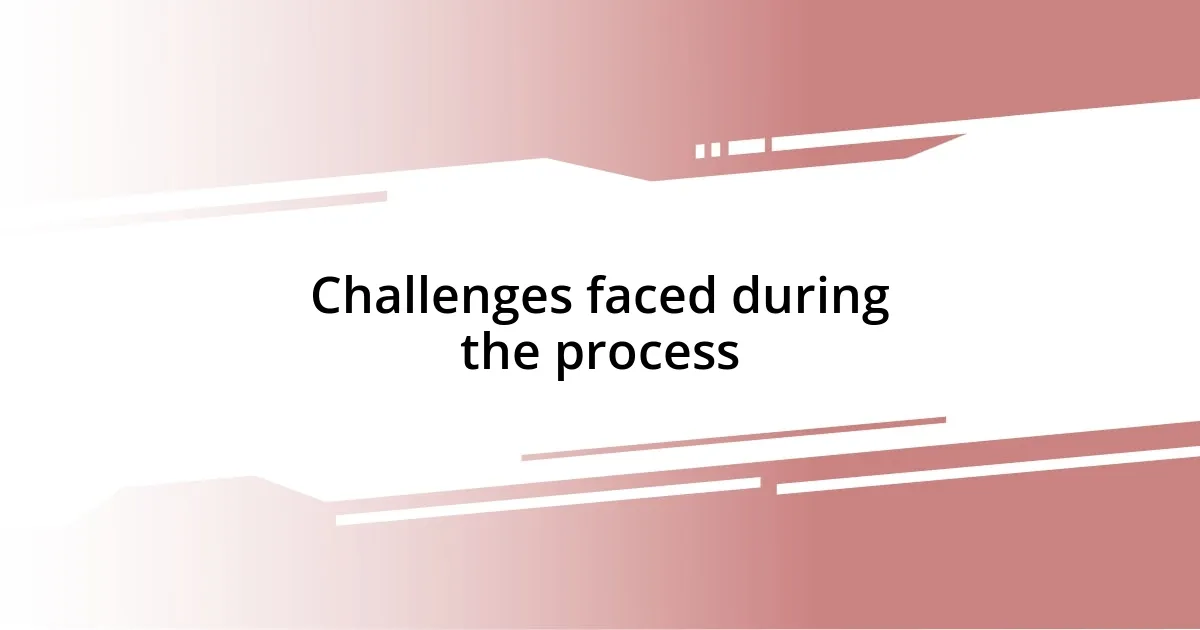
Challenges faced during the process
Navigating the process of Socratic questioning is challenging. At times, I found myself grappling with discomfort. Engaging deeply with one’s beliefs can shake the foundation of comfort many of us build around our ideas. For instance, during a particularly intense discussion, I asked a colleague why he held a specific viewpoint. The moment he had to articulate his reasons, I saw a flicker of uncertainty in his eyes. It was a visceral reminder that questioning can unearth insecurities, forcing both parties to confront uncomfortable truths.
Here are some challenges I’ve encountered while employing this technique:
- Resistance to questioning: People often feel defensive when challenged, making dialogue difficult.
- Ambiguity: Unclear questions can lead to confusion, detracting from the conversation’s intent.
- Emotional reactions: Deep-seated beliefs may trigger strong emotions, complicating discussions.
- Superficial engagement: Some may take questioning lightly, avoiding deeper reflection.
- Time constraints: Meaningful exploration requires time, which isn’t always available in fast-paced discussions.
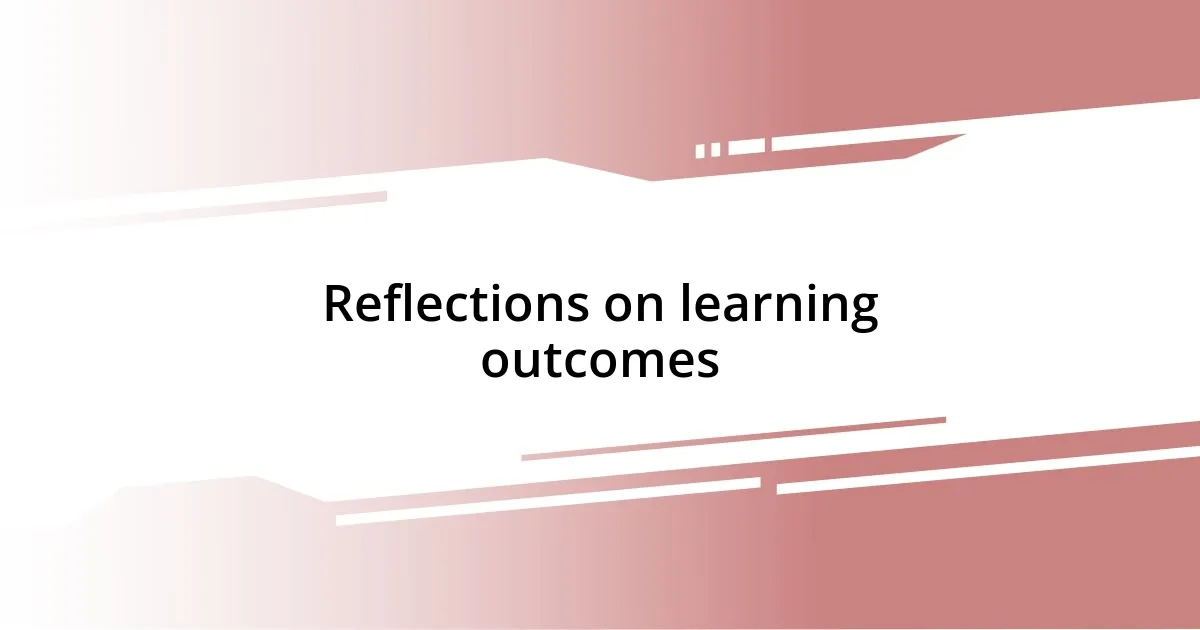
Reflections on learning outcomes
Reflecting on my learning outcomes from Socratic questioning, I’ve noticed a significant shift in my perspective. The more I engaged with this method, the more I realized that understanding doesn’t just come from answers but from the journey of questioning. After a group discussion where we wrestled with climate change, I felt a sense of clarity emerge, not from definitive answers, but from the maze of questions we explored together.
Socratic questioning has cultivated a deeper level of inquiry in my everyday life. I find that minor disagreements—like whether something is “good” or “bad”—now spark profound conversations instead of arguments. For instance, instead of saying, “I don’t like this movie,” I’ve started asking myself what specifically I didn’t enjoy. This transition has fostered understanding not only of my criteria for judgment but also of others’ viewpoints.
I’ve also witnessed notable shifts in my peers. In one session, a fellow participant shared how questioning their own viewpoint on education allowed them to empathize more with students’ experiences. That moment was precious, reminding me that the learning outcomes extend beyond individual understanding to fostering a community that values dialogue and varied perspectives.
| Learning Outcome | Example from Experience |
|---|---|
| Deeper Understanding | Clarified thoughts about climate change through exploring questions |
| Enhanced Inquiry | Shifted from statements to questions in everyday discussions |
| Mutual Empathy | Witnessed a peer express understanding through self-questioning |
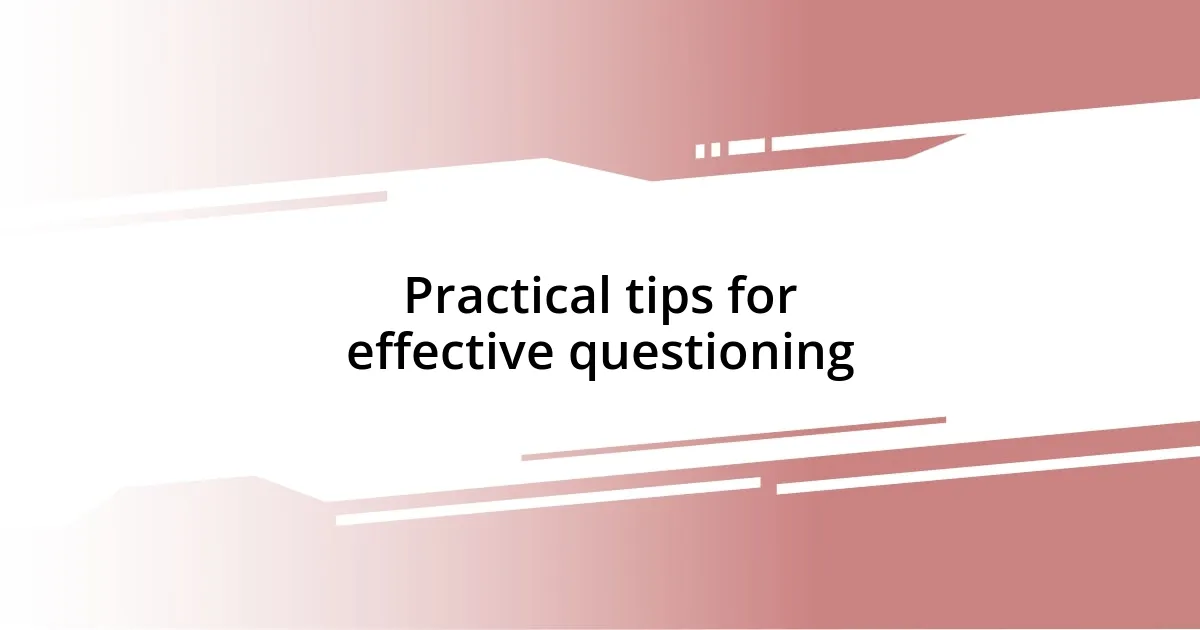
Practical tips for effective questioning
When it comes to effective questioning, the art of listening may be just as crucial as asking the right questions. I remember a discussion where I posed a thought-provoking question, but my genuine interest in the answer prompted my conversation partner to open up in ways I hadn’t anticipated. By actively listening, we built a bridge of trust, transforming the exchange into a safe space for vulnerability. Don’t you think that kind of atmosphere can foster deeper dialogues?
Another practical tip is to tailor your questions to the individual or group you’re engaging with. I’ve found that some people respond better to open-ended questions, while others appreciate a straightforward, direct style. For example, during a heated debate on political issues, I shifted from “What do you think?” to “How did you arrive at that conclusion?” The latter encouraged reflection and resulted in a richer conversation, moving us past knee-jerk reactions. Isn’t it fascinating how a slight change in phrasing can shift the dynamics of a discussion?
Finally, pacing your questions is vital. I learned this the hard way after a rapid-fire session that left everyone feeling overwhelmed. Now, I focus on one question at a time, allowing moments of silence for contemplation. This gives others the space to process before responding, often leading to revelations that might not arise in a quicker exchange. Have you experienced moments where pausing led to unexpected insights? I certainly have, and those pauses often reshape the direction of the conversation beautifully.

